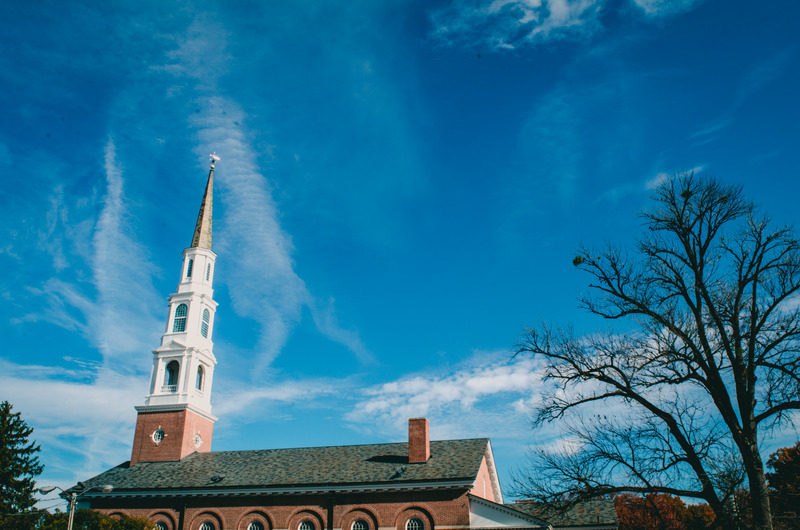One of the many joys of becoming a member of the household of faith is finding a “House of Prayer”, a local church fellowship of believers where you can grow in your walk with the Lord.
Proper fellowship with other believers is crucial to the glory-to-glory growth that God has intended for all of His children. We are many members of one body who need each other to survive and thrive (1 Corinthians 12:12).
Yet, not every church or assembly that bears the name of Jesus Christ, God, Lord, or a biblical reference carries the heart of God. While we all wish this was not so, we have to remember that there is no limit to where the enemy will attempt to cause confusion and division. The devil doesn’t see the local church and say, “Nope, that place is off-limits. I won’t even attempt to bring my perversion there.”
Are You in an Abusive Church or Under a Spiritually Abusive Pastor or Leader?
 On the contrary, many “church” leaders have been wooed by the enemy – drunk with power and influence, smitten by their own perceived greatness, and too prideful to see that they are out of alignment with God’s will for them as His under-shepherd.
On the contrary, many “church” leaders have been wooed by the enemy – drunk with power and influence, smitten by their own perceived greatness, and too prideful to see that they are out of alignment with God’s will for them as His under-shepherd.
The people of God belong to God – not the pastor or leader. And yet some leaders have the audacity to feed God’s sheep tainted milk and poisoned meat. There are perversion-laced sermons and ideologies being preached from pulpits to live streams – and God is not pleased with these flock scatterers (Jeremiah 23:1).
Some teammates on Team Jesus have pledged their loyalty to abusive ministries and don’t even know it. This is a major issue in and of itself. We cannot be so influenced by the “rock star” status of leaders, so attached to our positions and titles in the church, or so validated by our church affiliation that we cannot recognize spiritual abuse when we’re subject to it. And likewise, sisters and brothers in Christ don’t let other sisters and brothers stay blind to abuse without saying something.
How to Tell if You’re in an Abusive Church
Some of us can spot an abusive church or leader from miles away. For others, our eyes are so covered with the “scales of loyalty” to abusive ministries – we can’t see the truth, let alone see our way to freedom.
Recently, teammate Dr. Alexis Maston of Austin, TX shared 30 signs on her heart to warn of abusive churches and cultish leaders.
Are you experiencing any of these signs to the detriment of your walk with Christ?
- You can’t listen to anyone else preach.
- Only they have the ability to hear from God.
- They preach about you from the pulpit.
- They use the prophetic to manipulate you.
- They tell you who you can or can’t marry.
- What they say is Law; you cannot have a thought or opinion.
- You’re not allowed to attend any conferences outside of the house.
- They drill HONOR and COVERING into your head (MAJOR RED FLAG).
- When people leave, they speak bad about them and/or excommunicate them.
- They make you attend every church function and make you feel guilty if you don’t.
- There is a lot of gossip and slander in the church; people run to the pastor like they are kids, and the pastor is the parent.
- The church doesn’t fellowship with other congregations.
- They feel they are the only ones who have divine revelation.
- They focus heavily on titles and not on Jesus.
- Their members will fight you over them, or any correction you may have concerning the treatment of the parishioners.
- They have a whole lot of extra-biblical revelation not backed by the Word of God or sound elders.
- There isn’t a church board, nor leader connected to them; they expect everyone else to submit, but have not been submitted to anyone in years.
- They use flattery to get you in the congregation, but find fault in you to make you stay.
- They tell you if you leave the church you will never find your purpose outside of them.
- They turn you against your family and friends.
- You notice the church stays small, once it starts to grow someone leaves, it never really catches on.
- There are many similar stories of church abuse from those who left the community.
- Over excessive belief in deliverance, especially if you speak up against any of their behavior – they will tell you “that’s an educated demon”.
- Strong competitive spirit in the house amongst attendees and pastoral staff.
- The pastor is QUICK to call you “daughter or son” but doesn’t know you at all.
- Strong focus on the exterior as opposed to the interior.
- Mandatory prayer meetings that really are a witch hunt or some malicious prayer against someone who left.
- They put “The” before their title “The prophet, The Apostle,” etc.
- They sow discord amongst other members in the flock.
- They preach Saul and David via “touch not my anointed” to incite fear.
Bonus – Groupthink and uniformity is noticeable in the attire and attitude of the members.
Bonus 2 – They will call you a witch or jezebel if you disagree with them; they’ll discredit your name.
So, What’s the Play Call?
Whom the Son sets free is free indeed (John 8:36), and it is not the will of God for us to be entangled with ANY yoke of bondage (Galatians 5:1).
So, if you find yourself trapped in an abusive church or under an abusive pastor or leader, get out! Leave. God has not called us to be anyone’s Messiah – that position is already taken, sealed, and finished in the complete work of Jesus Christ on the cross.
But, you can save yourself, and find a loving local fellowship with a leader after God’s heart. Yes, it is possible. Good under-shepherds who preach sound doctrine still exist.
It may be hard depending on how long you’ve been attached to the abusive church but cling to God’s perfect will for you. He loves you too much to sentence you to a life of spiritual abuse at the hands of someone who abuses their authority and Jesus’ precious name.
We are praying for your bold decision to be free and that God will lead you – not to a non-existent “perfect” church – but to one where the leader and the people are committed to love and sound doctrine. A church where the Word of God is given free reign (sovereign power) to teach, rebuke, correct, and train in righteousness under the guidance of the Holy Ghost (2 Timothy 3:16), in Jesus’ name.
God bless.




